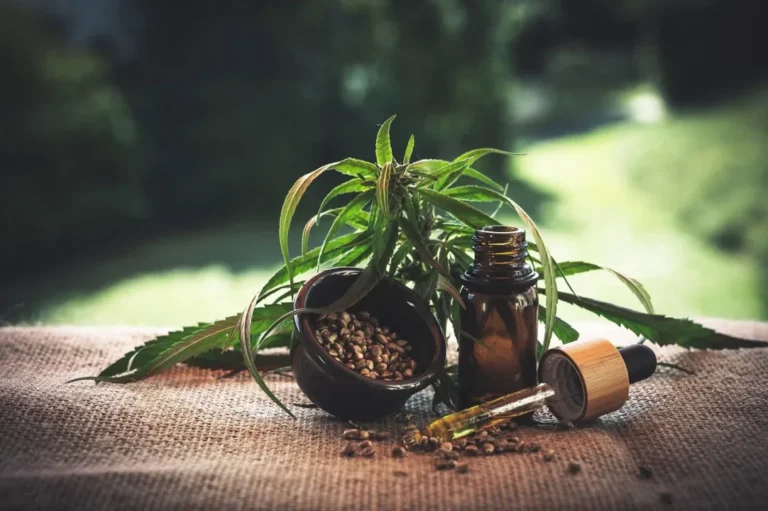In a bid to deal with the rising cases of mental health issues, medical experts have turned to the use of psychedelic therapy on patients with mental illnesses. Psychedelic therapy is the use of natural and man-made psychedelic drugs such as mushrooms, lysergic acid and marijuana to treat illnesses like PTSD, depression, and anxiety.
The practice was borrowed from ancient societies that used psychedelic drugs for recreation and medical purposes. Today, there are over 800 synthetic psychedelic drugs, each targeting specific receptors in the brain to offer a way of healing mental illnesses. However, medical experts also warn that psychedelic therapy is still fairly new and should be used with caution.
Here are some of the benefits and risks of psychedelic therapy.
Benefits
Treats Addiction
Psychedelic therapy can make it easier to quit drug abuse. Drug addicts who are in recovery usually experience a range of symptoms that make it hard for them to fully recover from their addictions. Experts have found that using psychedelic drugs can help the addict cope with these symptoms. Medical professionals use a psychedelic drug known as psilocybin along with other forms of therapy for people struggling with alcohol and cigarette addiction. They have noted that this form of therapy has a significantly higher success rate than typical therapy.
Eases Depression And Anxiety
Depression and anxiety are some of the most common types of mental illnesses. It’s estimated that 3.8% of the population experience depression and 4% experience anxiety. These disorders significantly diminish one’s quality of life and make it difficult to experience happiness. However, there’s a lot of stigma surrounding the treatment of depression with medicine which makes many reluctant to seek professional help. Medical experts have turned to psychedelic therapy to treat such people and people with drug-resistant depression. The results have been promising with over 65% of patients reporting a significant reduction in anxiety and depression.
Increases Openness And Connectedness
Many who have used psychedelic drugs, recreationally or medically, noticed that they felt more connected to the world and more open to new experiences. Drugs such as MDMA/ecstasy enhances feelings of empathy, euphoria, closeness, peace and sensitivity. Ecstacy was first used as a therapeutic drug in the 1970s, as some psychotherapists believed it opened people up and enhanced their potential for empathy and understanding of one another. A study showed that MDMA reduced feelings of shame and self-criticism in autistic adults.
Treats PTSD
This is possibly the most common use of psychedelic therapy. PTSD develops following an extremely traumatic experience. People with PTSD often experience intrusive thoughts, insomnia, anxiety and panic attacks. Medical experts have turned to psychedelics to treat this disorder, especially in cases where patients haven’t responded to other forms of treatment. MDMA, a substance commonly found in ecstasy, causes psychedelic effects in the brain such as increased euphoria and altered perceptions that have been useful in treating severe cases of PTSD.
Facilitates Emotional Release
As humans, we tend to remember negative experiences better than positive ones. This is an evolutionary trait that ensured early humans were safe from danger. Those who were more attentive to bad things were more likely to survive. Though we no longer need to be on high alert, we’re already hard-wired to focus on negative things which can have an effect on our everyday life. Psychedelic therapy can help patients who struggle with repressed and often traumatic negative emotions to release them.
Treats Neurological Conditions
Some psychedelic drugs have potent anti-inflammatory properties which are helpful in treating neurological conditions such as chronic pain, migraines and Alzheimer’s disease. Additionally, reducing inflammation in your body can boost your overall health and prevent the likelihood of developing some common lifestyle diseases.
Risks
Self-medication
Generally, psychedelic drugs are considered low-risk in a clinical setting. However, there are always risks associated with any kind of drug. There are even greater dangers when dealing with such powerful drugs. One of the main concerns that experts have expressed is the rise of self-medication cases. Psychedelic drugs are still illegal in most countries and in most cases, they’re sold in the black market which leads to a high number of people self-treating their conditions.
Psychosis
People with psychotic disorders such as schizophrenia are at a higher risk of experiencing psychosis after taking psychedelic drugs. These drugs alter the mind’s neurotransmitters which can lead to extreme hallucination and paranoia in people who are predisposed to them. However, it’s important to note that hallucination is part of psychedelic therapy. Additionally, intense symptoms are mainly experienced when using psychedelic substances without medical supervision or prescription.
Personality Change
There’s also a possibility that a patient might experience a personality change. Some studies have found that psychedelic drugs have long-term effects on someone’s personality. They make people more extroverted and open which isn’t necessarily a bad thing. However, if unsupervised, they may put themselves in dangerous situations as they seek new experiences.
Psychological Distress
Psychedelic therapy is meant to help patients address deep-rooted issues that some may be unprepared to face. This can lead to psychological distress which can worsen the symptoms. It’s important to have a good support system and be in a safe environment before taking any psychedelic drugs.

